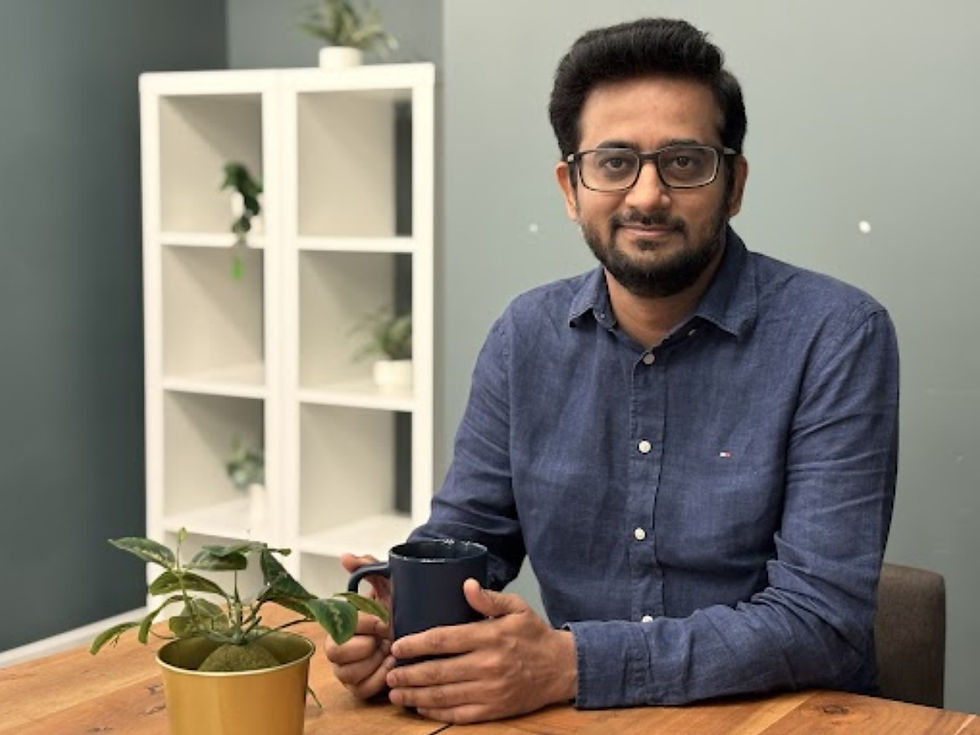Coffee with Rebecca
- Karp Strategies
- Apr 19, 2021
- 3 min read

With the nation turning a corner – into springtime, vaccinations, and yes, increased federal funding for crucial initiatives – we thought we’d check in over a cup of coffee with Karp Strategies founder Rebecca Karp on what comes next, on how she’s advising her clients to escape the scarcity mindset and plan effectively.
Cheryl: Let’s start by just checking in. What comes now, for you and your family? How are you planning to celebrate these warmer months?
Rebecca: We’re getting out into Prospect Park more, taking our dog for walks, cooking a lot on our little patio, planning some upstate trips, and starting to think about what it’s going to be like to be finally reconnected with our family and friends again. I think hope is in the air, personally, professionally– after a long, hard year, a little slice of hope is something we all deserve.
Cheryl: Turning to the future of business post-pandemic; the most common question we get, in its infinite permutations, is, what now? What does equitable development look like post-pandemic?
Rebecca: Great question. This is a very interesting moment. With federal funds coming in, everyone from business consultancies, offshore wind developers and real estate companies to small towns and big economic development agencies is more able to switch away from a yearlong ‘scarcity and asset protection’ mindset towards planning, investment, and action, and being ready to tackle the scope of the challenges– economic, social, environmental and otherwise– in front of us while continuing our fight against COVID-19.
Every industry is different of course, but a common thread that unites us is that we are ready to do two things at once: fight COVID, and plan for the economic planning and development future.
Cheryl: So where should we be focused? How do we start prioritizing?
Rebecca: I always say: we have to go slow to go fast. So much has changed this year; most obviously, it’s not just the COVID pandemic we’ve done battle with, we’ve also just begun a long and overdue national reckoning around racism. Let’s make sure to maintain that momentum, even as businesses begin to get back to something approaching ‘normal’.
It doesn’t matter what lane you travel in, from growing the impact of offshore wind to dealing with the health crisis or commercial vacancy and the changing pattern of work; now is the time to take a thoughtful pause, to analyze our surroundings, to reach out to partners to determine what our real priorities are amidst all the things that need our attention, and to identify guideposts to measure ourselves against or we will certainly find ourselves in old frameworks and with old bad habits.
This is a unique moment where we can begin to develop and implement new paradigms for community and economic development. It’s critical that we do seize this moment to start that process and keep the ball rolling through 2021 and beyond.
Cheryl: Speaking of old frameworks and new paradigms, what do you think some of the core lessons of this year have been?
Rebecca: With this federal funding we have a probably once-in-a-lifetime opportunity to create new systems that work for more people, to come back from this crisis a stronger, more resilient, more equitable region and nation.
But it means we have to be thoughtful about what comes next. That is something that Karp Strategies has deep experience helping with; we do the analysis that helps you get a fuller picture of what’s been done before, and what the most likely path to success is– whether it’s a master planning program that includes affordable housing and public space, or an offshore wind regulatory question, or you run a small town that simply wants to invest in your commercial corridor– we all need to think carefully about what the next step is, about how we best capitalize on this federal investment and opportunity. It’s up to all of us, every sector, to prioritize equity and to do the leg work to ensure that it really tracks through from idea to execution.




Comments